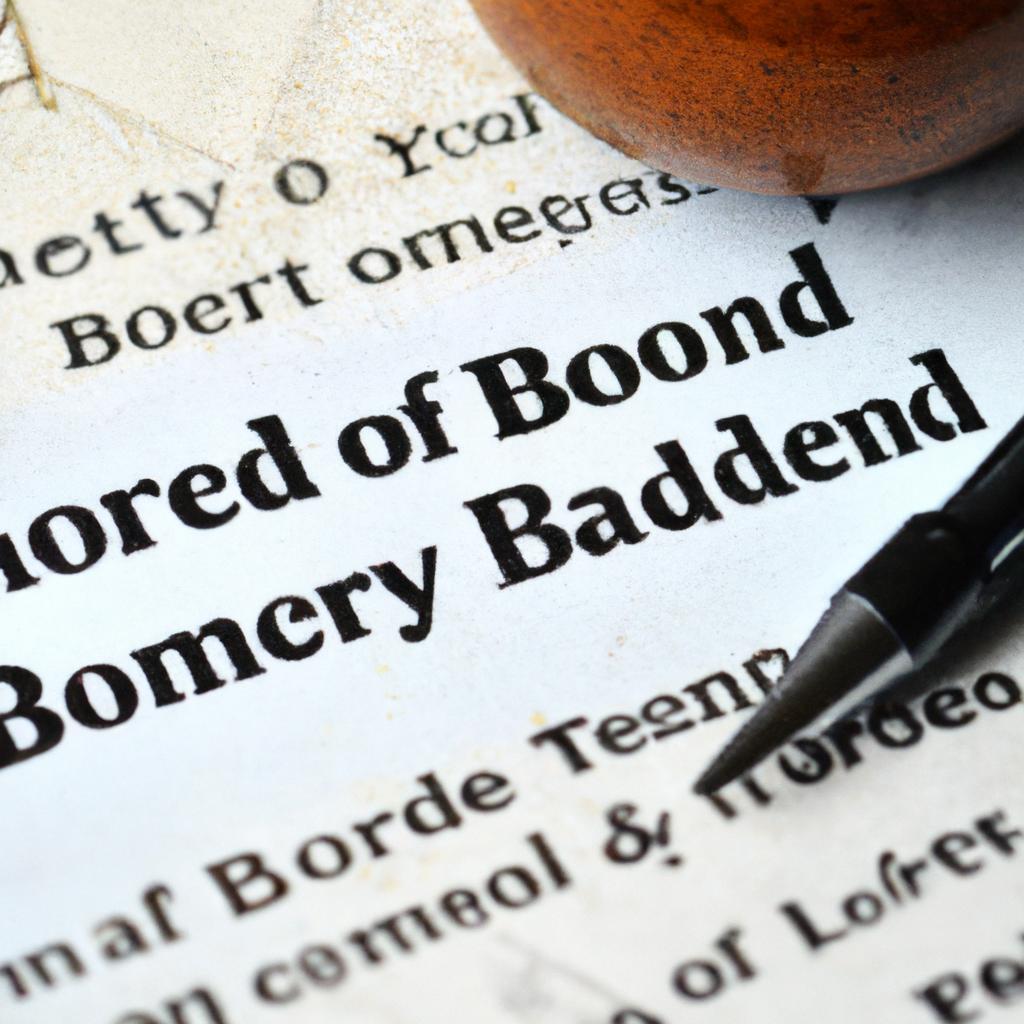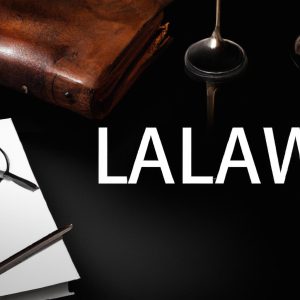Probate can be a complicated and emotionally fraught process for those left behind after a loved one passes away. In the state of New York, ensuring that the distribution of assets is handled smoothly and according to the law is paramount. This is where probate bonds come into play. At Morgan Legal Group, we understand the complexities of probate law and offer our expertise in navigating the intricacies of this legal process. Join us as we delve into the world of probate bonds in New York and how they can provide peace of mind for all parties involved.
Understanding the Importance of Probate Bonds in New York
Probate bonds in New York are a crucial aspect of estate administration that provide protection for the beneficiaries and creditors of the estate. These bonds ensure that the executor or administrator of the estate fulfills their duties and obligations in accordance with the law. By obtaining a probate bond, the executor is demonstrating their commitment to carrying out their responsibilities ethically and responsibly.
Without a probate bond, there is a risk that the executor could mismanage the estate, mishandle assets, or act in a fraudulent manner. In the event of such misconduct, beneficiaries and creditors would have little recourse to recover their losses. By requiring probate bonds in New York, the legal system aims to safeguard the interests of all parties involved in estate administration, providing peace of mind and security during a difficult and emotional time.

Key Factors to Consider When Obtaining a Probate Bond in New York
When obtaining a probate bond in New York, there are several key factors to consider to ensure that the process goes smoothly and efficiently. One important factor to keep in mind is the amount of the bond required. The size of the estate and the complexity of the probate process will determine the amount of the bond needed.
- Size of the estate: Larger estates will require a higher bond amount.
- Complexity of the probate process: If there are disputes among heirs or creditors, a higher bond amount may be necessary to protect all parties involved.
- Probate court requirements: Different probate courts may have specific requirements for the amount of the bond, so it is important to be aware of these regulations.
Additionally, it is essential to choose a reputable surety company when obtaining a probate bond in New York. A surety company with a strong financial standing and a history of reliability will ensure that the bond is issued promptly and efficiently. It is also crucial to thoroughly review the terms and conditions of the bond to fully understand your responsibilities and obligations as the executor of the estate.
| Key Factors | Considerations |
|---|---|
| Size of the estate | Larger estates will require a higher bond amount. |
| Complexity of the probate process | A higher bond amount may be necessary for disputes among heirs or creditors. |
| Probate court requirements | Be aware of specific regulations regarding the amount of the bond. |

Navigating the Legal Requirements for Probate Bonds in New York
Probate Bond New York
When it comes to , it is essential to understand the intricacies of the process. Probate bonds, also known as fiduciary bonds, are required to protect the interests of beneficiaries and creditors in the administration of an estate. In New York, probate bonds are often required when an executor or administrator is appointed to manage the estate of a deceased individual. These bonds ensure that the executor or administrator will fulfill their duties in accordance with the law and distribute the assets of the estate properly.
At Morgan Legal Group, we have extensive experience helping clients navigate the complex world of probate bonds in New York. Our team of experienced lawyers can assist you in understanding the legal requirements for probate bonds, as well as help you secure the bond you need to move forward with the administration of the estate. We are dedicated to providing our clients with the knowledge and support they need to ensure a smooth and efficient probate process.

Expert Guidance on Selecting the Right Probate Bond for Your Estate
When it comes to selecting the right probate bond for your estate, it is essential to seek expert guidance to ensure that your assets are protected and your wishes are carried out effectively. At Morgan Legal Group, we understand the complexities of probate bonds and can provide you with the necessary support and advice to make informed decisions.
- Consider the size of your estate and the value of your assets.
- Consult with a knowledgeable attorney to assess your specific needs and requirements.
- Review the different types of probate bonds available and determine which one aligns best with your goals.
Our team of experienced lawyers can assist you in navigating the probate process and guide you in selecting the right probate bond for your estate. With our expertise and personalized approach, you can have peace of mind knowing that your loved ones will be taken care of according to your wishes.
Q&A
Q: What is a probate bond in New York?
A: A probate bond in New York is a type of surety bond that ensures the executor of an estate will properly manage and distribute the assets in accordance with the terms of the deceased individual’s will.
Q: Who is required to obtain a probate bond in New York?
A: Executors or administrators of an estate are typically required to obtain a probate bond in New York, especially if the will specifies it or if the court deems it necessary to protect the interests of the estate’s beneficiaries.
Q: How does a probate bond protect the estate and its beneficiaries?
A: A probate bond in New York acts as a form of insurance that guarantees the executor will fulfill their duties honestly and faithfully. If the executor fails to do so, the bond will provide financial compensation to the estate’s beneficiaries.
Q: How much does a probate bond in New York cost?
A: The cost of a probate bond in New York can vary depending on the size of the estate and the qualifications of the executor. Typically, the premium for a probate bond is a percentage of the total bond amount.
Q: Are there any alternatives to obtaining a probate bond in New York?
A: In some cases, the court may allow the executor to waive the requirement for a probate bond if all beneficiaries consent to it. However, this is not common and it is usually in the best interest of the estate to have the bond in place.
The Way Forward
In conclusion, navigating the intricacies of probate bonds in New York can seem like a daunting task. However, with the right guidance and support, you can ensure that your loved ones are protected and that their wishes are carried out smoothly. Whether you’re an executor, a beneficiary, or a legal professional, understanding the importance of probate bonds is key to safeguarding the interests of all parties involved. So, take the necessary steps, educate yourself, and embark on this journey with confidence. Remember, with the proper precautions in place, you can bring peace of mind to those you care about most.
 Probate is a legal process in which a deceased person’s assets, debts, and property are distributed to their heirs. It is a time-consuming and complicated process that often involves court proceedings and can be financially burdensome for the heirs. This is where a probate bond comes into play, offering protection and guaranteeing the proper handling of the estate. In this article, we will delve deep into the topic of probate bond in New York, its importance, requirements, and the process involved in obtaining one.
Probate is a legal process in which a deceased person’s assets, debts, and property are distributed to their heirs. It is a time-consuming and complicated process that often involves court proceedings and can be financially burdensome for the heirs. This is where a probate bond comes into play, offering protection and guaranteeing the proper handling of the estate. In this article, we will delve deep into the topic of probate bond in New York, its importance, requirements, and the process involved in obtaining one.
What is a probate bond?
A probate bond, also known as fiduciary bond or executor bond, is a type of surety bond that is required by the court to ensure that an executor or administrator of an estate carries out their duties and responsibilities in an honest and responsible manner. It acts as a guarantee for the fair distribution of the estate assets to the rightful heirs and ensures that no misconduct or negligence occurs during the probate process. In simple terms, it is a form of insurance that safeguards the interests of the beneficiaries.
Why is a probate bond required in New York?
In New York, a probate bond is required for all estates, regardless of their size, unless the decedent has specifically waived or modified the bond requirement in their will. This requirement is in place to protect the beneficiaries and creditors of the estate. It ensures that the executor or administrator acts in the best interest of the estate and does not misuse or mishandle the assets.
Who needs a probate bond and when?
A probate bond is required when a will is submitted to the Surrogate’s Court for probate, which means to prove its validity. The bond is needed before the court appoints an executor or administrator for the estate. The bond is also required if there is no will and the court must appoint an administrator to manage the estate.
Types of probate bonds in New York
There are two types of probate bonds that can be used in New York – executor bond and administrator bond. The executor bond is required when the decedent has named an executor in their will. On the other hand, the administrator bond is needed when there is no will, and the court appoints an administrator to handle the estate. The amount of the bond is typically equal to the value of the estate.
How to obtain a probate bond in New York?
The process of obtaining a probate bond in New York involves the following steps:
1. Determine the bond amount: The first step is to determine the bond amount required by the court. It is calculated based on the value of the estate assets and can be obtained by contacting the Surrogate’s Court or consulting an attorney.
2. Find a bonding company: Once you know the bond amount, you can start looking for a bonding company that offers probate bonds. It is essential to do your research and choose a reputable and reliable bonding company.
3. Apply for the bond: The bonding company will require you to fill out an application form and provide necessary documents, such as a copy of the will, death certificate of the decedent, and a list of assets.
4. Underwriting process: The bonding company will conduct a thorough review of the application and documents to determine the risk involved in issuing the bond. They may also require a credit check and request additional information if needed.
5. Pay the premium: If the bonding company approves the bond, you will be required to pay the premium, which is a small percentage of the bond amount.
6. File the bond: Once the bond is issued, it must be filed with the Surrogate’s Court and approved by the judge before the probate process can begin.
7. Bond release: After the probate is complete, and the assets of the estate have been distributed, the bond can be released. The bonding company will require a release from the court before returning the premium to the executor or administrator.
Benefits of a probate bond
1. Protects the beneficiaries: A probate bond offers protection to the beneficiaries in case the executor or administrator fails to fulfill their duties or mismanages the estate assets.
2. Ensures accountability: With a probate bond in place, the executor or administrator is accountable to the beneficiaries, ensuring that the estate is handled with honesty and integrity.
3. Speeds up the probate process: Having a probate bond in place can make the probate process faster as it eliminates the need for the court to review the executor’s financial record and background.
4. Relieves financial burden: By obtaining a probate bond, the executor or administrator does not have to provide personal assets as collateral, which can be financially burdensome.
Tips for obtaining a probate bond in New York
1. Start the process early: It is advisable to start the process of obtaining a probate bond as soon as possible to avoid delays in the probate process.
2. Research bonding companies: Do your research and compare the services, rates, and reputation of different bonding companies before choosing one.
3. Maintain good credit: As part of the underwriting process, bonding companies may check the credit history of the executor or administrator. It is essential to maintain a good credit score to increase the chances of approval.
4. Keep accurate records: It is crucial to keep accurate records of all the estate assets and transactions to avoid any discrepancies during the probate process.
5. Seek legal advice: If you are unsure about the probate bond process or have any questions, it is advisable to seek legal advice from an experienced attorney.
In conclusion, a probate bond is a necessary requirement in New York for ensuring the proper handling of an estate during the probate process. It offers protection and accountability while relieving the burden on the executor or administrator. If you are in the process of probating an estate in New York, make sure to understand the requirements and benefits of a probate bond and consult a bonding company or attorney for assistance.







